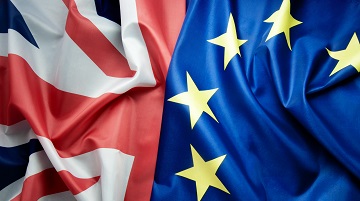
The much awaited Draft UK-EU Withdrawal Agreement and Political Declaration have been pawed over by every journalist, analyst, and lowly Policy Adviser worth their salt. The headlines are well-known and the political ramifications are already being felt. Delving into the detail of the defence and security elements it is clear to see that however contentious other issues may get, these are two areas where there is much agreement.
Since June 2016 the merry-go-round of Brexit issues has seldom featured defence matters, the most publicised being the ‘EU Army’ proposal, an idea that the UK Government has consistently blocked. However, more immediate and practical matters of collaborative defence R&D, capability development, defence industrial support, and operational cooperation have played supporting roles in the wider enduring security partnership discussions.
Withdrawal Agreement
The Draft Withdrawal Agreement maintains much a similar tone and direction to the individual positions put forward by the EU and UK over the past 10 months. This close and pragmatic relationship would provide the flexibility for the UK to contribute to Common Security and Defence Policy (CSDP) missions where interests are aligned. In addition the stated intention to remain close and supportive within international forums and on the issues of sanctions is a welcome signal that radical political divergence is unlikely.
Political Declaration
Likewise the Political Declaration restates that involvement in CSDP missions should be considered on a case by case basis through a Framework Participation Agreement, allowing the UK to “best tailor its contribution and provide timely expertise”. The Political Declaration expands to state:
“As a contributor to a specific CSDP mission or operation, the United Kingdom would participate in the Force Generation conference, Call for Contributions, and the Committee of Contributors meeting to enable sharing of information about the implementation of the mission or operation. It should also have the possibility, in case of CSDP military operations, to second staff to the designated Operations Headquarters proportionate to the level of its contribution.”
The Political Declaration also reaffirms the importance of interoperability and joint effectiveness of Armed Forces as two key justifications for a close defence capabilities development. This is to be taken forward through the UK’s proposed ‘Administrative Arrangement’ allowing UK access to the European Defence Agency (EDA). As well as European Defence Fund (EDF) participation for UK entities meeting eligibility criteria and Permanent Structured Cooperation (PESCO) participation, based on invitation on an exceptional basis.
European Defence Fund
In this area specifically it is important to remember that these negotiations are setting the standard for future negotiations that may follow between the EU and any nation wishing to exit the Union. With this in mind UK industry believes that EDF engagement with third countries should be based on a pragmatic approach that favours the benefits of international collaboration with any future partner. Defence capability development is increasingly international and collaborative projects bring a whole raft of benefits to participating nations; these should be core principles for the EDF.
Regardless of the world-leading capabilities and expertise that the UK has to bring to the table in a negotiation such as this, development of a fund such as the EDF should be based on how best to access the talent and resources that exist globally, not just to closely protect those who are within the immediate Union.
The Declaration provides an increased degree of certainty as to the close and collaborative relationship that the two negotiators wish to create on defence cooperation; however the devil will be in the detail as to exactly how beneficial or restrictive this will be for UK industry.





